You did a double take when you saw that cinnamon-colored Bichon Frise strolling through the park. After all, your snowy white pup looks nothing like that! What gives with the variety in Bichon coat colors?
It all comes down to genetics. While some sport the classic powder puff white, Bichons’ coats can also come in shades of apricot, cream, gray, and cinnamon. Those stunning colors aren’t just for looks – they provide insight into each dog’s unique DNA makeup.
Breeders aim for health above all when planning parent pairings. But they also strategically select dogs with desirable traits like low-shedding, allergy-friendly coats. This careful process naturally results in occasional variations in hue.
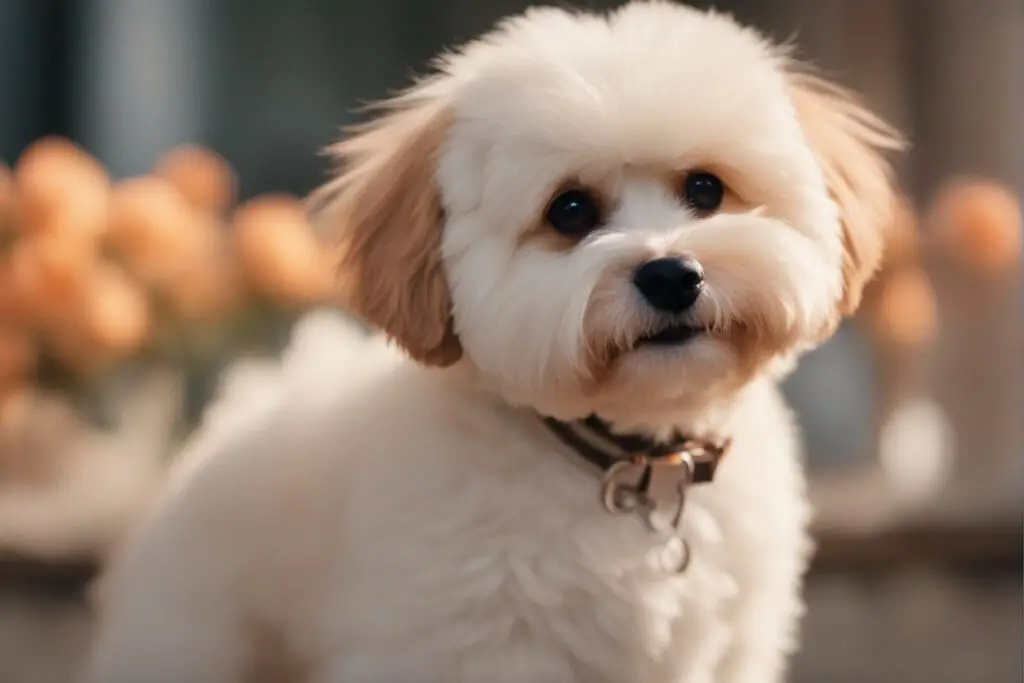
So next time you spot a Bichon rocking a trendy ombre style or flaunting chocolatey tips, smile! Their one-of-a-kind look reveals the fantastic diversity hidden within the breed’s genetics. Underneath that colorful coat beats the heart of the same playful, lovable Bichon Frise we know and adore.
Table of Contents
- 1 Bichon Frise Color Variations: Common to Rarest
- 2 The Classic Solid White Bichon Frise
- 3 Exploring Non-White Bichon Frises
- 4 Delving into Bichon Frise Coat Genetics
- 5 Coat Color Impact on Bichon Frise Health
- 6 The Behavior-Color Connection in Bichons Frises
- 7 Wrapping Up Bichon Frise Colors
- 8 Related posts:
- 9 The Ultimate Guide to Understanding Bichon Frise Hypoallergenic Qualities
- 10 Ultimate Guide to Raising Bichon Frise Puppies
- 11 Bichon Frisé: All You Need to Know
- 12 Bichon Frise Rehoming: Find Your Perfect Companion Today!
Bichon Frise Color Variations: Common to Rarest
White: The Popular Hue
The Bichon Frise is often seen in a solid white coat. This standard color stands out and gives these pups their signature fluffy look.
- White: Most common color for Bichon Frises.
But the world of Bichon Frise colors isn’t just black and white. Well, mostly white, but with some rare color variations sprinkled in.
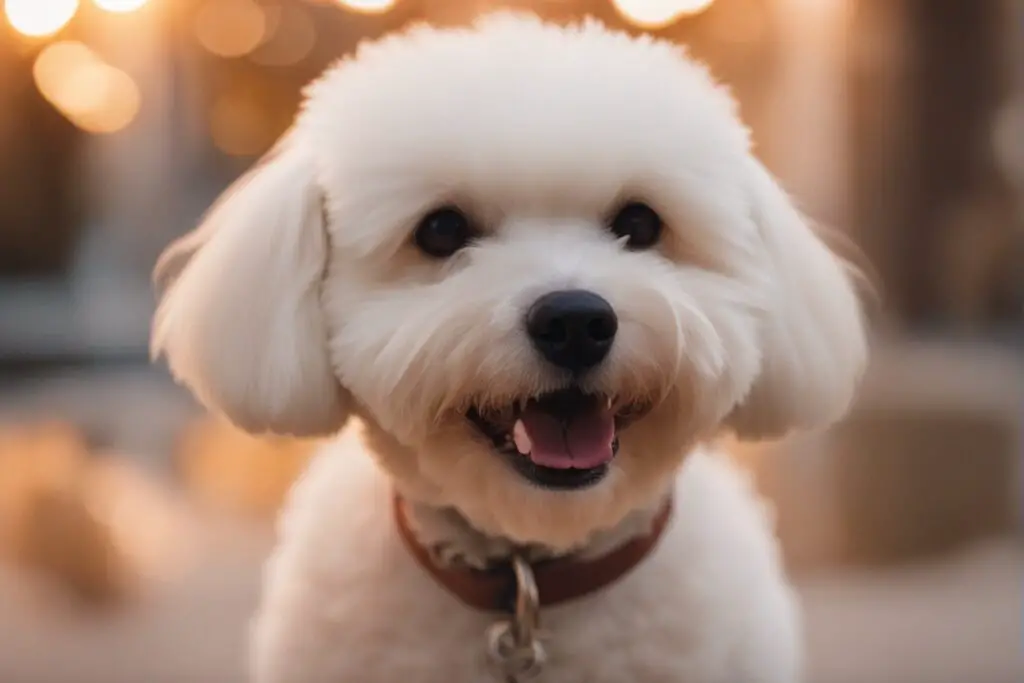
Rare Colors: Cream, Apricot, Gray
These are like finding a four-leaf clover in a field of three-leaf ones. Not impossible, but it requires some luck!
- Cream: A light touch of yellow on the usual white coat.
- Apricot: Slightly darker than cream with hints of orange.
- Gray: An uncommon shade that appears as they age.
Why are these colors so rare? It’s all about genetics.
The Rarity Factor
Several factors influence why specific colors are more popular or rarer than others:
- Genetics: The parents’ coat colors play a big part.
- Breeding Practices: Some breeders may focus on maintaining the famous white coat.
- Aging Process: Some Bichons may develop gray hairs as they grow older, similar to humans!
So next time you see a non-white Bichon Frise, know you’re looking at something special!
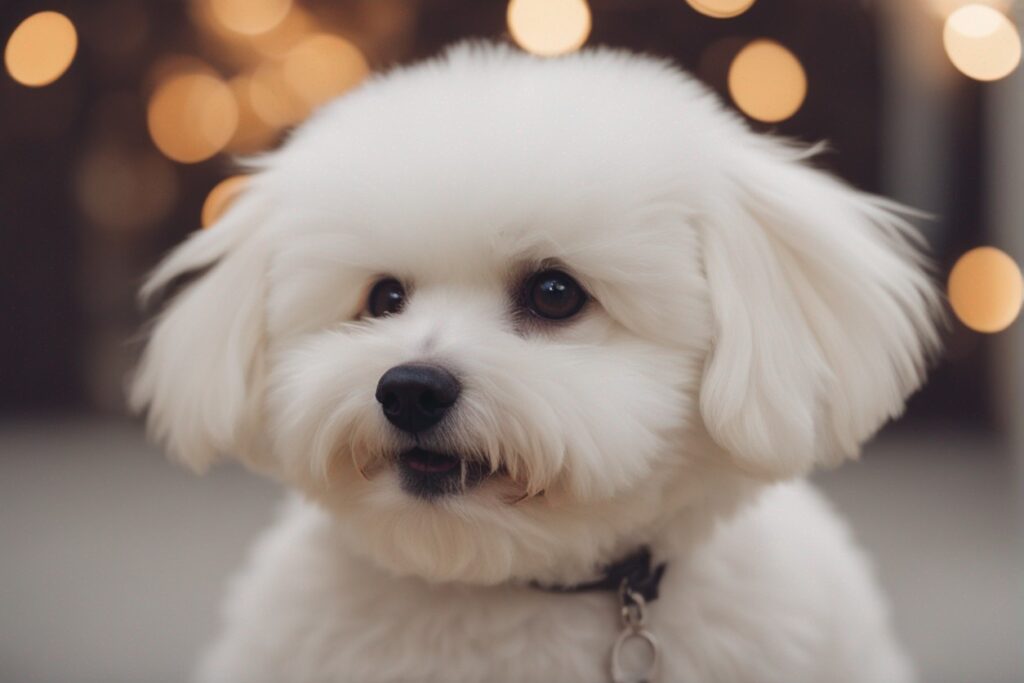
The Classic Solid White Bichon Frise
Popularity and Preference
The solid white bichon frise is a crowd favorite. These purebred Bichon frise dogs are like fluffy clouds, their pure white fur setting them apart from other dog breeds. Imagine a snow-white pup playfully bounding around – who wouldn’t fall in love with that?
- White Bichons: Most preferred among all Bichon frise colors.
- Brown or Cream Bichons: Less common but equally adorable.
Grooming the White Bichon
Maintaining the brilliant white fur of a bichon is no cakewalk.
- Regular grooming: Keep your white dog’s coat pristine.
- Frequent baths: Prevents yellowing of the white fur.
- Special care for the “bichon frise nose”: A unique feature that needs attention.
Remember, a well-groomed bichon isn’t just about looks – it’s about ensuring they’re comfortable too!
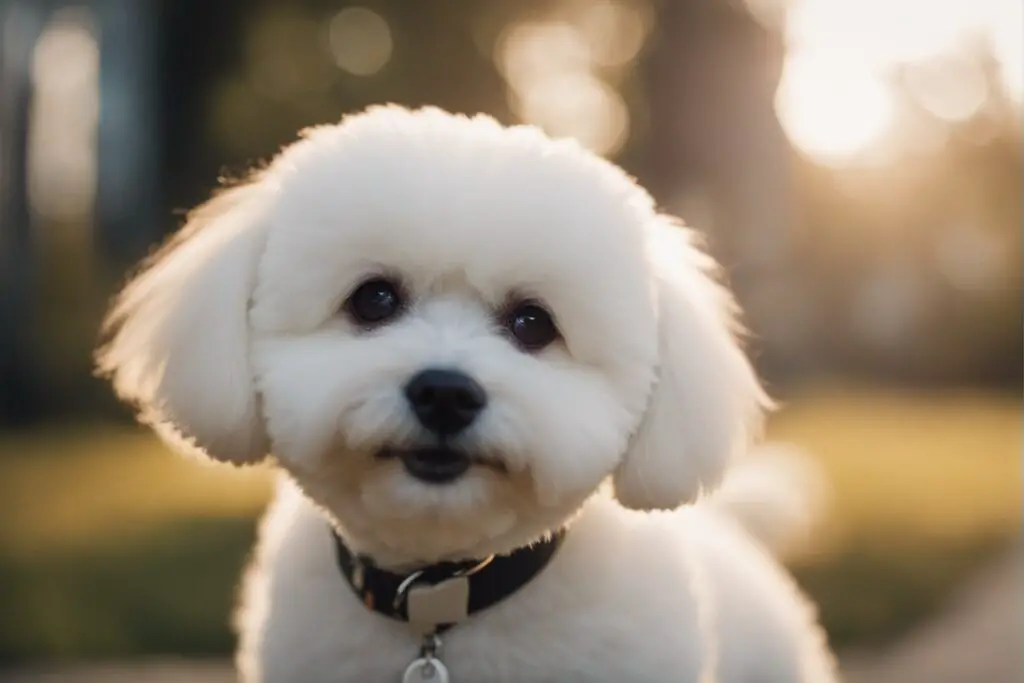
Show Dog Standards and Breeding Practices
In show circles, the solid white bichon frise is king.
- Purebred Bichons: Highly sought after for their uniform color and appearance.
- Breeding Practices: Breeders often focus on producing pure white puppies to meet demand.
But hey, whether it’s a cream bichon, brown Bichon, or the classic solid white – each one’s unique! It’s not always about being show-ready; sometimes, it’s all about finding your perfect furry friend.
Exploring Non-White Bichon Frises
Genetics and Color Variation
Bichon frise colors are more than just white. Selective breeding by breeders can lead to a variation in coat colors. Brown or black fur on these little dogs is not unheard of, but it’s all down to genetics.
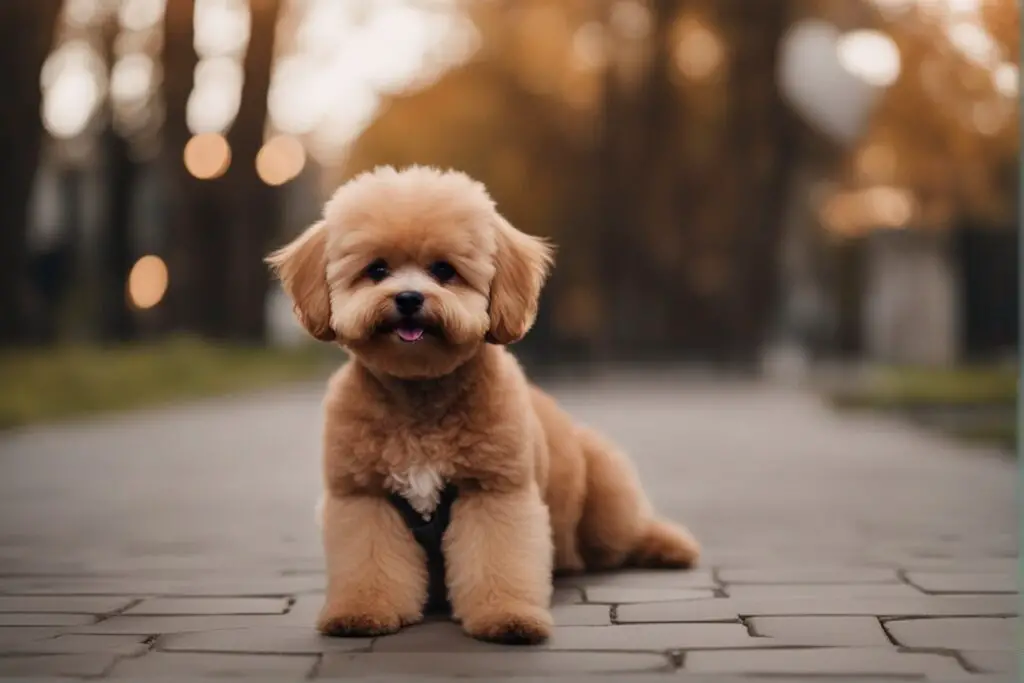
For example, if both parent dogs carry the gene for a dark brown or black coat, there’s a chance their bichon pups will inherit this trait. It’s like rolling the dice with Mother Nature!
Health and Coat Colors
Now you might be wondering, “Does color affect health?” Well, some believe that non-white Bichons may have specific health issues. But there isn’t much concrete evidence to support this.
However, it’s always important to watch your companion dogs’ health regardless of their coat color. Regular vet check-ups are a must!
Popularity in Dog Shows
Despite the AKC and other kennel clubs’ preference for white dogs in dog shows, non-white Bichons have been gaining popularity. Some folks think they add an extra dash of charm to the breed.
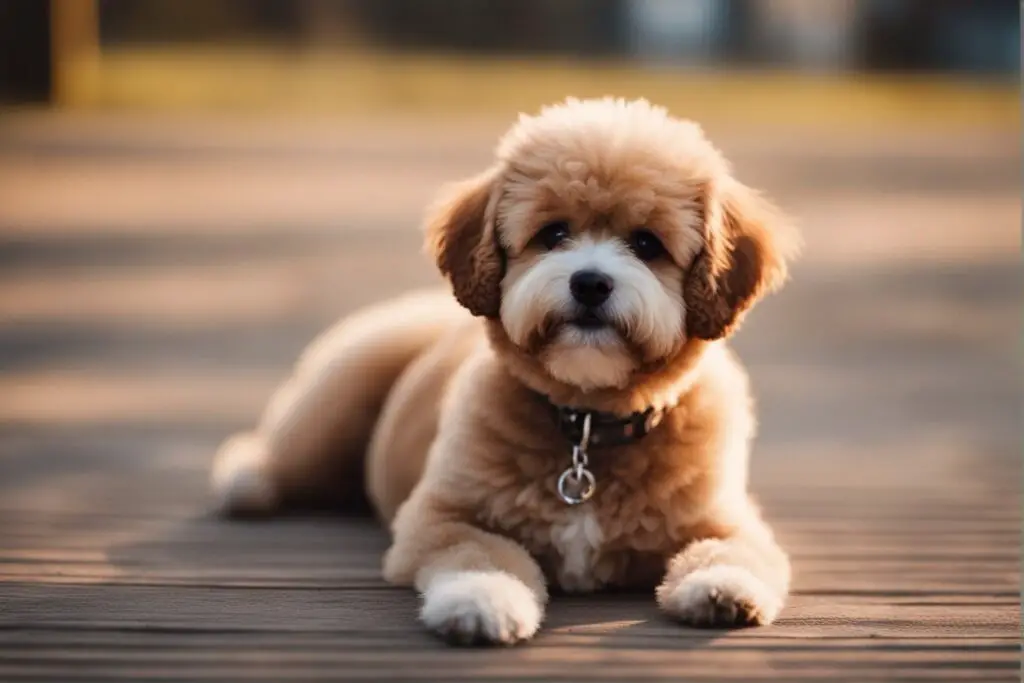
But remember – whether they’re prancing around at dog shows or snuggling up with you at home – what matters most is the love and companionship these small dogs offer.
Delving into Bichon Frise Coat Genetics
Bichon Frise coat genetics are a curly mystery. Various genes play critical roles in determining the breed’s coat color. The intensity coat color gene, for instance, is a major player:
- Lighter colors result from recessive genes.
- Darker hues come from dominant genes.
Breeding practices also shape the genetic diversity in Bichon Frise coat colors. Breeders often select mates based on their desirable coat characteristics, leading to mixed genes.
But it’s not all about appearances! Some genes linked with the Bichon Frise’s adorable curly coat may also be associated with certain health conditions:
- Dilution gene: This gene can cause color dilution alopecia, which leads to hair loss and skin issues.
- Recessive gene: Certain recessive genes can be linked to congenital health issues like deafness.
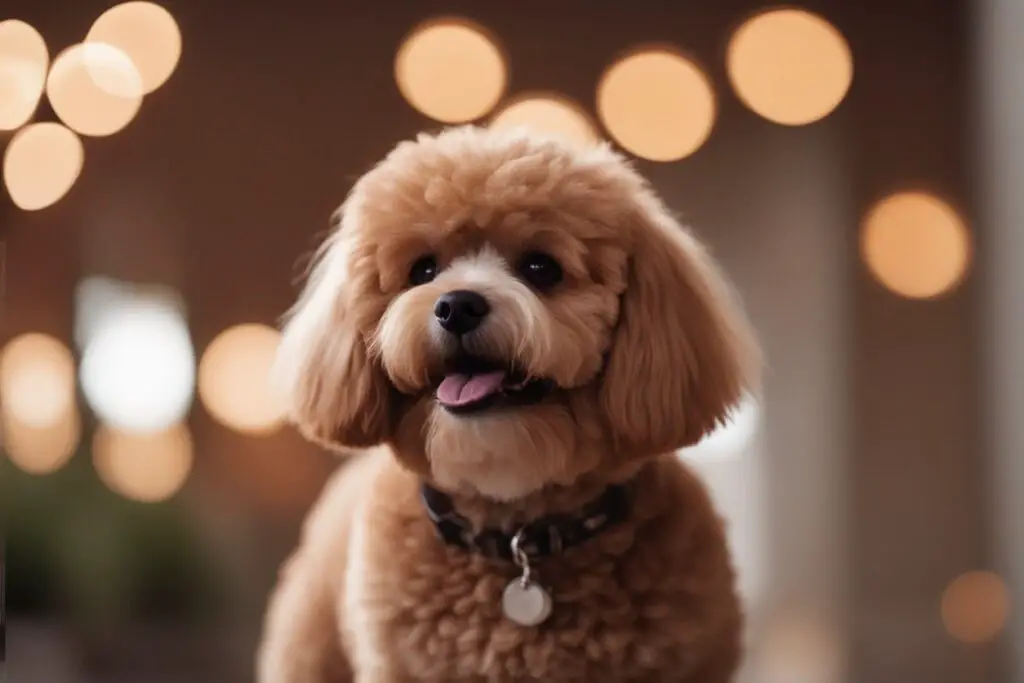
So next time you spot a Bichon Frise strutting its stuff, remember there’s more than meets the eye when it comes to that fluffy white fur!
Coat Color Impact on Bichon Frise Health
Colors and Health Issues
Bichon Frise coat colors can hint at specific health issues. Some research suggests a link between particular coat colors and health conditions:
- White: Prone to skin allergies
- Cream or Apricot: Possible higher risk of eye problems
Genetic testing is a game-changer here. It helps identify potential health risks linked to different coat colors.
The Power of Genetic Testing
Genetic testing isn’t some sci-fi concept; it’s accurate and helpful. Like people, dogs have genes that determine their physical traits, including coat color. These tests can reveal if your Bichon Frise might develop color-related health issues.
Imagine you’re playing detective, but instead of solving crimes, you’re predicting your pup’s future health. Cool, right?
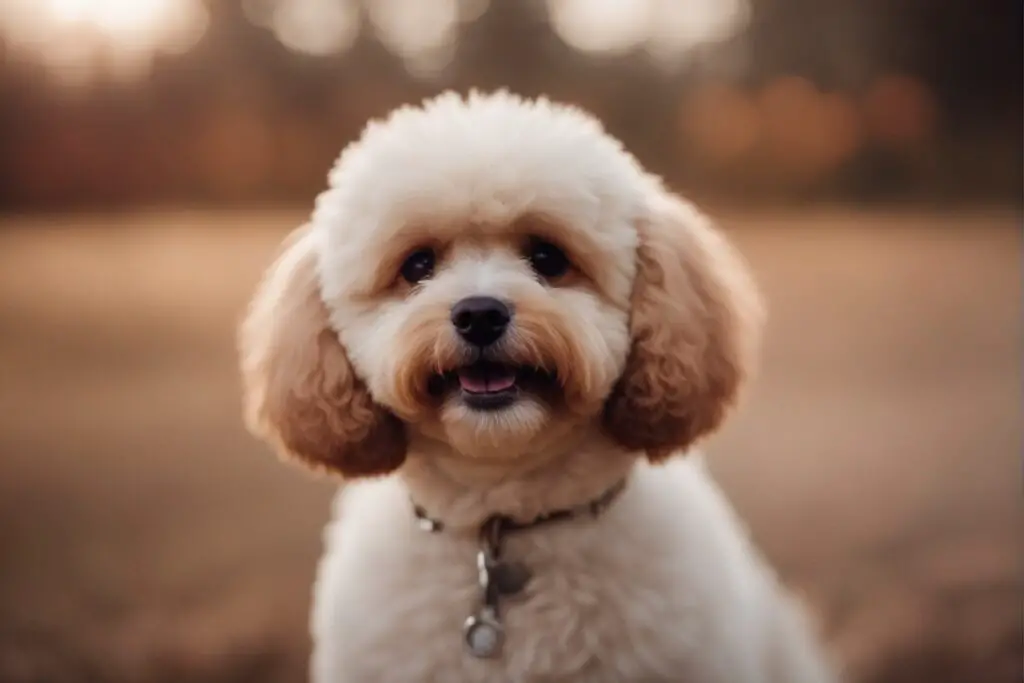
Prevention Measures
Knowing the possible health-color links gives us power: the power of prevention. For example:
- Regular vet check-ups for early detection
- Specific diets to boost immunity
- Tailored exercise regimes for overall wellbeing
In short, your Bichon Frise’s coat color could be more than just a pretty shade—it’s potentially a peek into their future health.
The Behavior-Color Connection in Bichons Frises
Ever wondered if your bichon frise’s coat color has any link with their behavior? Let’s dive in.
Debunking Myths
First things first, let’s debunk some myths. There are claims connecting bichon frise colors and temperament. Some say darker-colored ones are more aggressive, or light-colored ones have separation anxiety. But remember, these are just myths with no scientific backing.
What Science Says
Scientific studies don’t support a behavior-color connection in bichons frises. There is no proven reason to believe that a bichon’s fur color can cause specific behaviors or conditions like separation anxiety or deafness.
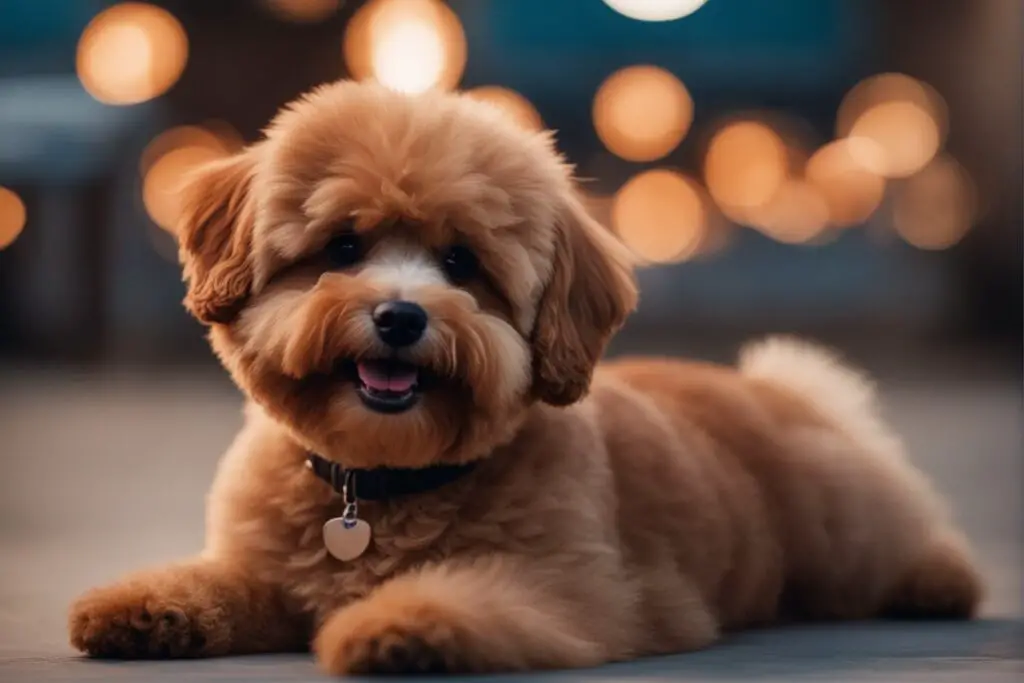
However, albinism, a condition causing a lack of pigmentation in the skin and fur, can affect a dog’s health which may indirectly influence its behavior. For instance:
- Albino dogs often suffer from vision problems.
- They could be more prone to sunburns and skin cancers.
But note that albinism doesn’t directly influence temperament.
Eye Colors and Behavior
Another area of interest is eye color. While there isn’t any concrete evidence linking eye colors and behavior in bichons frises, it’s an exciting field for future research.
So while your Bichon’s coat might make them look unique, it doesn’t define their personality or health conditions. Their behavior is shaped by genetics, upbringing, training, and socialization – not merely the color of their fur or eyes!
Wrapping Up Bichon Frise Colors
So, there you have it! We’ve taken a colorful journey through the world of Bichon Frises. From their classic snow-white coats to the rarer color variations, these fluffy pups never cease to amaze. It’s fascinating how genetics play a role in their coat colors and can influence their health and behavior.
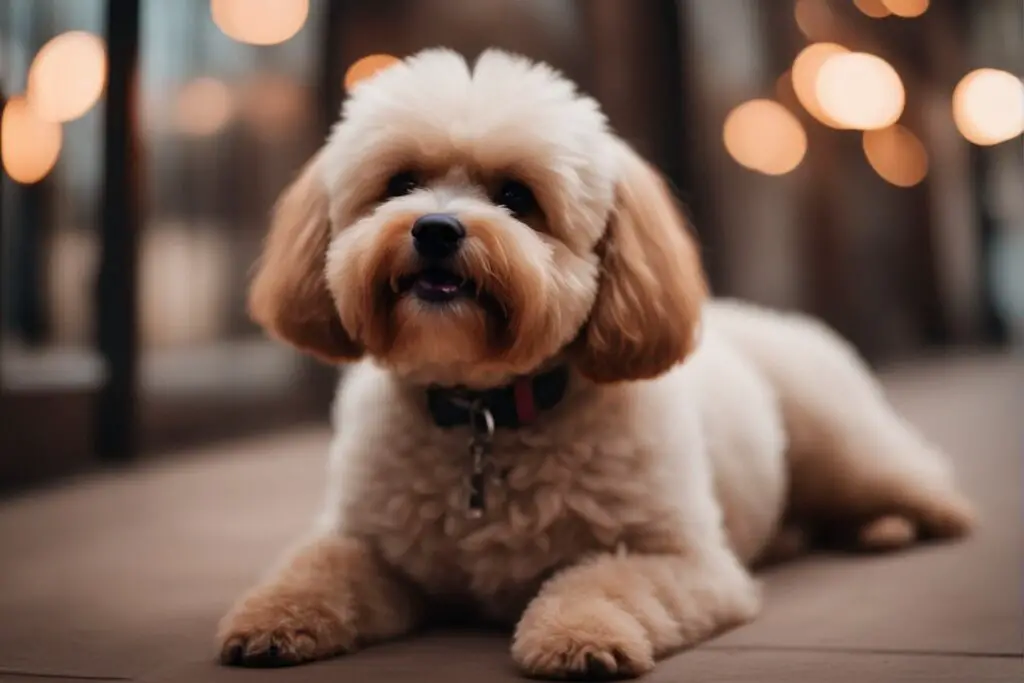
But remember, no matter what shade your Bichon wears; they’re all equally lovable and full of personality. So why not add a little more fluff to your life? Go ahead, let a Bichon Frise color your world!
FAQs about Bichon Frise Colors
What is the most common color for a Bichon Frise?
The most common color for a Bichon Frise is solid white.
Are there black or brown Bichons?
While less common, some Bichons may have black or brown patches on their coat due to genetic variations.
Does coat color affect a Bichon’s health?
There isn’t any direct link between coat color and health issues in Bichons. However, some research suggests that dogs with certain colors may be prone to specific conditions.
Can I choose the color of my Bichon puppy?
You can express a preference but remember that genetic factors can sometimes make the final adult coat color unpredictable.
Is there any behavioral difference based on the coat color of a Bichon Frise?
No definitive evidence exists linking behavior with dog coat colors, including the bouncy and friendly bichons.